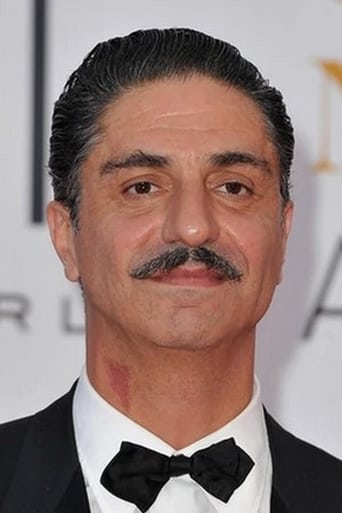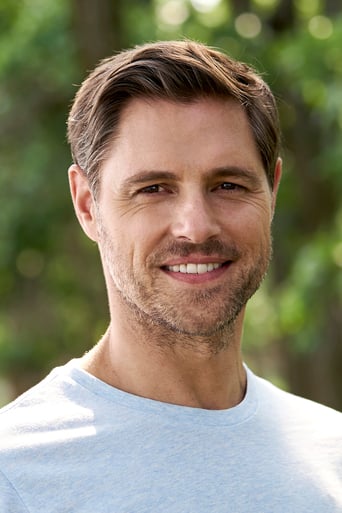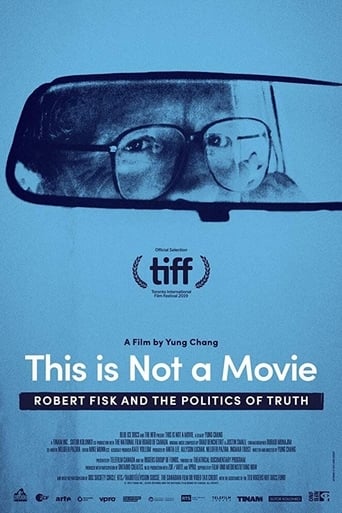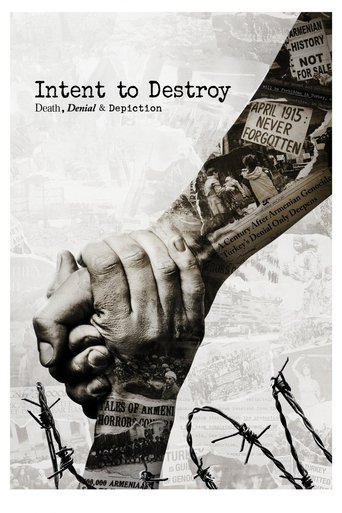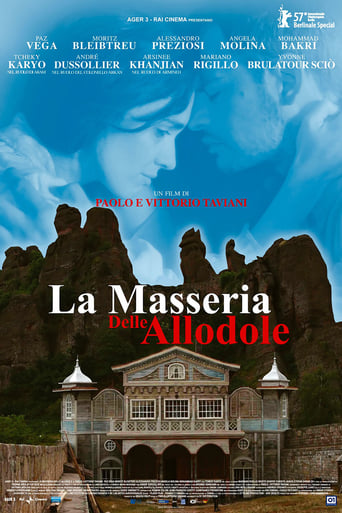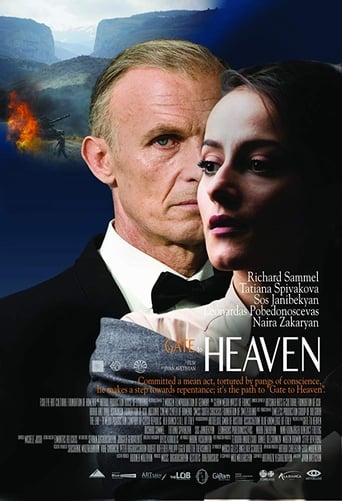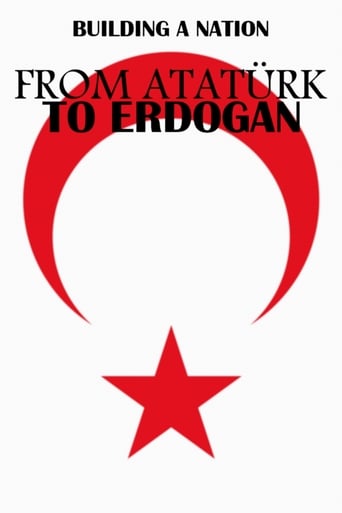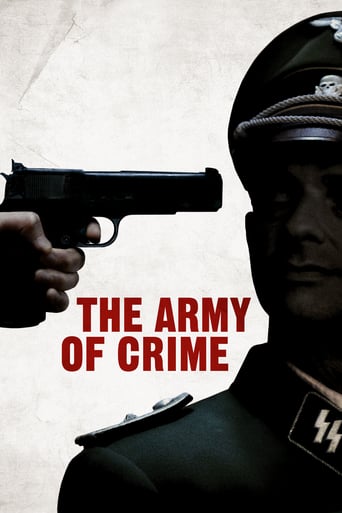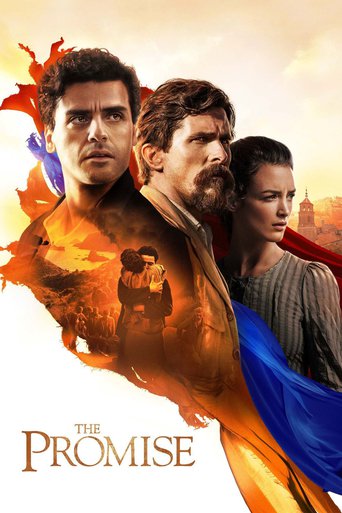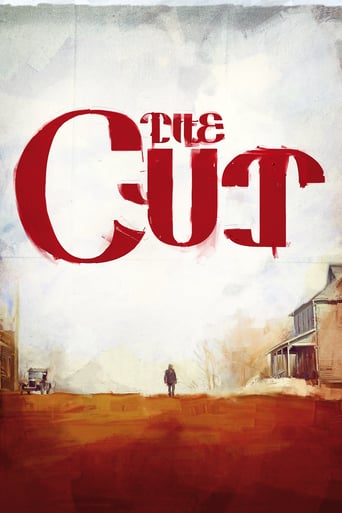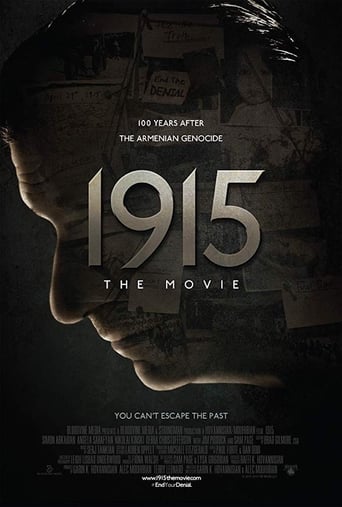

1915 (2015)
Exactly 100 years after the Armenian Genocide, a theatre director stages a play to bring the ghosts of the past back to life.
Watch Trailer
Cast


Similar titles
Reviews
A complicated film about the echoing effects of the 1915 Armenian Genocide in the descendants of survivors today. There are many poignant moments in this film which will touch the heart of any survivor of genocide, however it tries to cover such a complex issue in a short amount of time that it becomes convoluted. But films which require you to think are the best ones. I'll be watching it a 2nd time. Even Siamanto says this story cannot be told.Don't expect a historical film about the events of 1915 nor the current day politics on the issue. Anyone in these comments who give it 1 star are clearly DENIALIST TURKS. If you suggest this is a political film you obviously haven't seen it and have another agenda. If anything this film suggests Armenians and Turks should get past their differences.
The movie 1915 may just look like a movie alerting its viewers of the horrors of the Armenian Genocide and how they impact the lives of modern-day Armenians (which is a totally applicable and reasonable way of viewing the movie), the movie can also be read as the personal struggle and repent of Simon, as he attempts to remedy his wife's doomed condition. But before I can elaborate on this, there are some negatives that the movie holds. For example, the movie was a little too slow, with many scenes staying for longer than they should. Although this can signify the realism of the characters, due to there being long silences in many real-life dramatic scenarios, it still lowered the attraction of the movie, but not by a serious amount. Now, for the story itself, it can be read as a review on the genocide and how it affects everyone, but I believe that it can be viewed with more psychological analysis. I view the movie as being about Simon and his struggles in life, and not about the Armenian Genocide. The film shows that (to my understanding) Simon is a very patriotic man, as he believes that if you stand for something, you must give it 110% of your dedication. This explains his focus on respecting the ghosts of the dead, the ignoring of the protesters, and even the abandonment of his relative, who he deemed as not as dedicated as him. This is also very evident in the fact that he thinks that he can cure his wife's depression after losing their son, and uses the Armenian Genocide as both a tool to help her cope, and a tool to keep him going. But just like radiation, after using this to attempt to cure his wife, he also becomes convinced of his ideals, and because of his attitude to life, he has no intention of self-evaluation, until the start of the movie. Here, he sees how he has psychologically damaged his wife and thusly doomed her, and seeks of a way of redemption. He settles that the only way that he can fix the problem is by cutting him from her life, as shown by him desperately wanting his wife to take the soldier's hand in the play. Once she finally does, his conscious is cleared, or so he thinks, and he attempts to leave for good. However, he still hasn't d cured himself of his self-delusions, and finds himself back in 1915. Sadly, his wife was never truly changed for the better, as although in the play she has a new family, she still hears the lullaby Simon sang to her when they were together. This interpretation might be right, or totally wrong, but the fact that it can exist means that this is a story well-done, which greatly contributes to the movie's quality.
A mass of confusion for this viewer. The story seems to bounce around between - the horrible 1915 genocide of Armenians, a haunted theatre, a love triangle, political protesters, arguing actors, a frustrated director, police, how to sell tickets for a one night performance, a possible murder plot, and an actress that can channel the dead.I got lost in this story. I was hoping for some insight into the 1915 massacre innocent people but nothing like that happens. The entire story is more about Simon's ego than bringing to the public knowledge a horror that happened 100 years ago.A very odd movie.
1915, 1917, 1922, 1933, 1949, 1961, 1975, 1994. Dates. Numbers. The act of naming: a date and nothing more. This dates sum up a number of 993,000,000 million people murdered, slaughtered, and killed, thrashed, beaten, slayed, executed. -For what? - We may ask – Why? – we all inquire with both, disgrace and sorrow. An all we overhear when we ask, when we think of it, when we try to swallow all of this, when we even consider asking, is silence, stillness, muteness. These dates, these marks of history, are inviting, welcoming us to speak. These inscriptions, in which lives, stories, deaths, lies, moments, times, instants, people, are hidden and where we storage every inch of history in dates, so that we may allow ourselves to dismiss them from our memories; something marks a date, and that 'something' is that which we attempt so hard to let go, but will haunt us every time we mark a mark again, it will take us back to it, with all the disgrace and humiliation that encompasses, every moment in the history of men. Because, every script comes or happens for the first and last time, every time. Those dates are something that we do not yet really know how to identify, regulate, recognize, distinguish we have not yet found a way to name them, and we circumspect them with a number, around a number, along a cipher, a code, an encryption. Nevertheless, that dates tell us that they should endure from here on unforgettable: an ineffaceable event in the shared archive of a universal calendar, a worldwide experience of time, a schedule for humanity's memoirs. But they also cry to us, telling and recalling us that we are unable to reconcile with history, that we cannot make amends with time, we are incapable of mooring those deaths, they tell us that they haunted by its own time, a time that is much less its own than impossibly inherited in the unsituatable experience of their moment. Shall we try to write what happened in those dates in past tense? Or is present tense more suitable to announce us what enclosures those marks? Is the past already gone, removed, erased, or is the past happening every time we consign ourselves to oblivion? Is present tense, is the word "now", a word that opens, unlocks, and answers; a tense as faltering as it is urgent, a tense that inaugurates the event of writing and marking, as once an unfulfillable anticipation of what is to come, what is ahead of or in the work, and an all too precipitate (therefore "improper") decision about the past as, to choose from now on, the "proper" tense?This is what makes the film 1915 a way to resurrect old ghosts, merging past experiences with present ones. 1915 is a way to let a date happen, once and for all, as the way it should have happened long ago: it is way to allow 1915, as a date, as a calendar script, to escape its own fate. A way to let it happen. A way to assume a date. A way to assume the deaths. Assume that we allow those dates to happen. And it lets us know that when we forget, we kill the deaths again, we take the knives of our guilt and with remorse we stab them to their graves once and twice, repeatedly. Although I believe that knowing what happened and how it happened, isn't an emergency exit from guilt, at least it make us conscious that we are facing, and we will eternally face our impossibility to mourn, to grief them. And that even if we'd like to held one minute of silence for every victim of these crimes, we wouldn't have enough time, because we would have to be silent for 189 years. We have not enough time to mourn, we have not enough time to narrate each of the stories of the ones that were killed, we cannot even tell each name, write each name, know each name. 1915, as a movie, as a date, as an event, as a moment, as a genocide, externalizes us that there are gaps that we are unable, and we are powerless to fill; the gap—which makes as much as it breaks—is therefore where 1915, 1917, 1922, 1933, 1949, 1961, 1975, 1994 starts, and re-starts time and does it once more.


